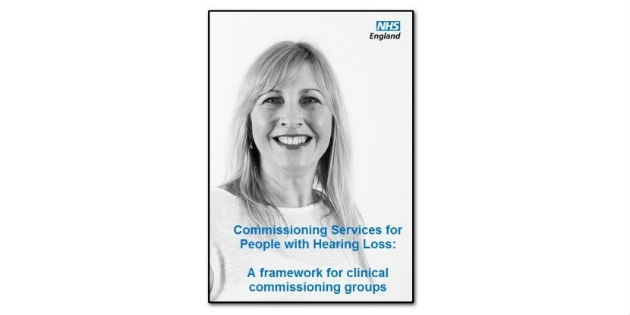Hearing Loss Commissioning Framework launched
NHS
A new framework for the commissioning of audiology services in England has been launched.

Jim Fitzpatrick MP, Chair of the all-party group on hearing loss and deafness, hosted NHS England and guests at Portcullis House at the House of Commons for the official launch of Commissioning Services for People with Hearing Loss: A Framework for Clinical Commissioning Groups.
NHS England has produced the framework as part of its commitment in the Action Plan on Hearing Loss to improve hearing services in England and to build on Monitor’s review of adult hearing services.
During the launch event, Mr Fitzpatrick MP, spoke about the prevalence of hearing loss in England and the consequences of not tackling hearing loss early despite the benefits of intervening being well-documented. Hearing loss is now one of the most common long-term conditions in older people, with over 9 million people across England experiencing some degree of hearing loss. This number is expected to rise to 13 million by 2035.
For those that do try to address their hearing issues, there is a huge variation in access and quality of services across the country. Assessments, treatment pathways and provision of hearing aids vary from area to area. Follow up is inconsistent and only 1 in 10 people are offered choice. The framework tries to address all these issues by providing best practice guidance and principles for commissioners. It details what Clinical Commissioning Groups (CCGs) need to consider in assessing local needs. The report encourages CCGs to provide best quality and outcomes, whilst providing value for money through outcome-based commissioning. It also provides recommended outcomes and a model service specification for adult hearing services for CCGs. Case studies of different commissioning models are included for CCGs considering reviewing and redesigning hearing services in their locality.
The document has three parts designed to support CCGs in commissioning cost effective, quality services for their local populations: Strategic Planning; Procuring Services and Monitoring and Evaluating Services and it asks commissioners to meet the needs of the local population, involve them in decisions, encourage services to enable people to address their hearing loss and access hearing aids, as well as making patients aware of other support.
Professor Sue Hill OBE the Chief Scientific Officer for NHS England chaired the launch and acknowledged the input from the audiology community in the report.
“In developing this framework, we have taken into account the wealth of knowledge, evidence and experience that our partners and stakeholders have within the hearing loss community to ensure it is based on evidence and best practice. We are very grateful to the CCGs, commissioning support units (CSUs), subject matter experts, and charities and professional representative groups who, as members of the Hearing Loss and Deafness Alliance, have given so much of their time to co-produce this framework with us.”
Dr. Roger Wicks, Director of Policy and Campaigns at Action on Hearing Loss, said: “We welcome this framework, which we feel presents a cost effective alternative to cuts to hearing aid provision and presents CCGs with support on commissioning high quality services.
“Hearing aids are a lifeline to those who have access to them, and nine out of ten people who have them use them regularly. We hope this guidance ensures that everyone with hearing loss in England will be encouraged to seek help and gain the benefits of hearing aids.”
NHS England will promote the document to CCGs in time for their 2017 budget rounds. In parallel, the National Institute of Health and Care Excellence (NICE) is developing a guideline on the assessment and management of adult-onset hearing loss which is expected to be published in May 2018. This will then be used to develop a quality standard for adult-onset hearing loss.
Read the published framework here.
Source: NHS



